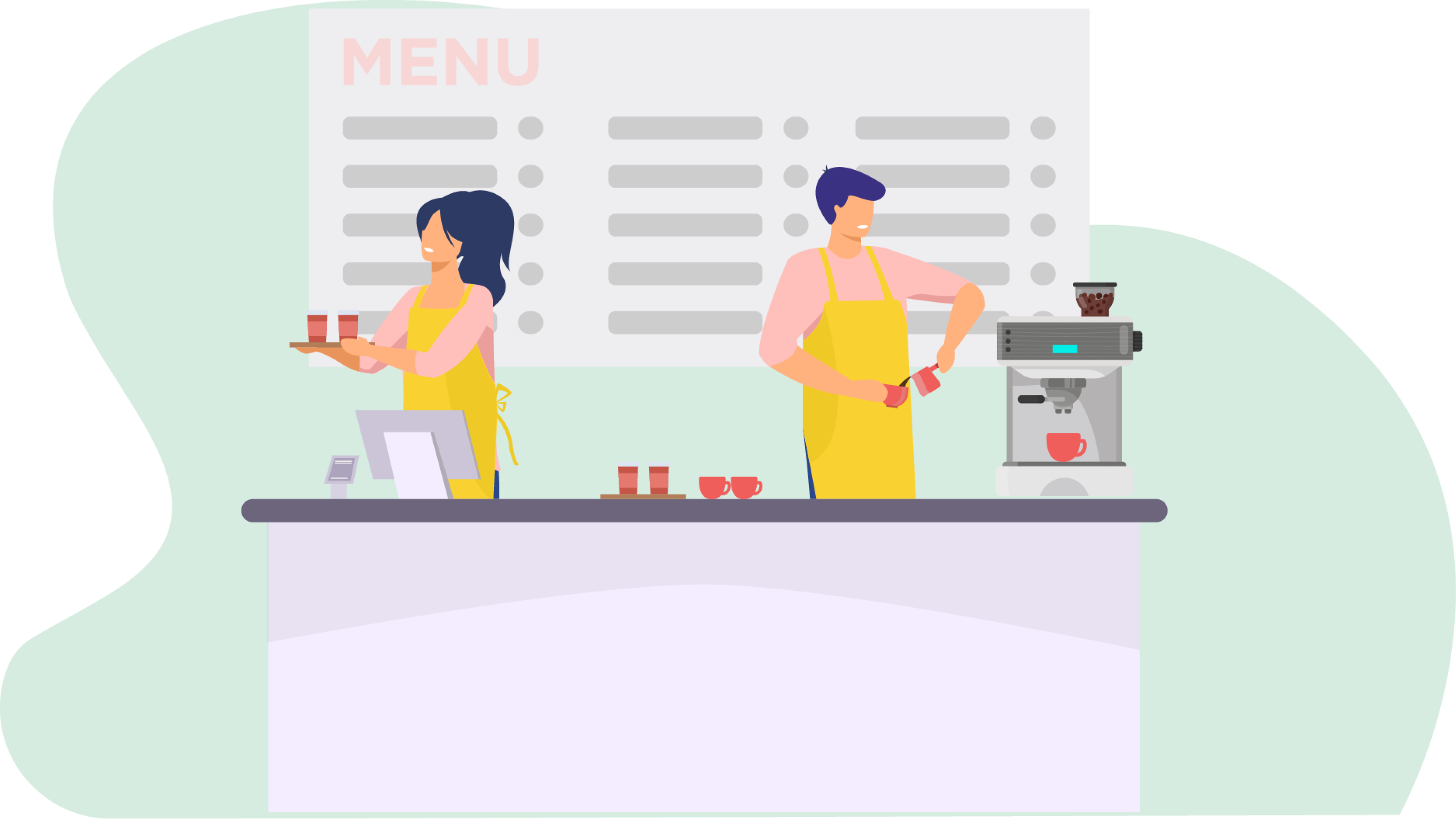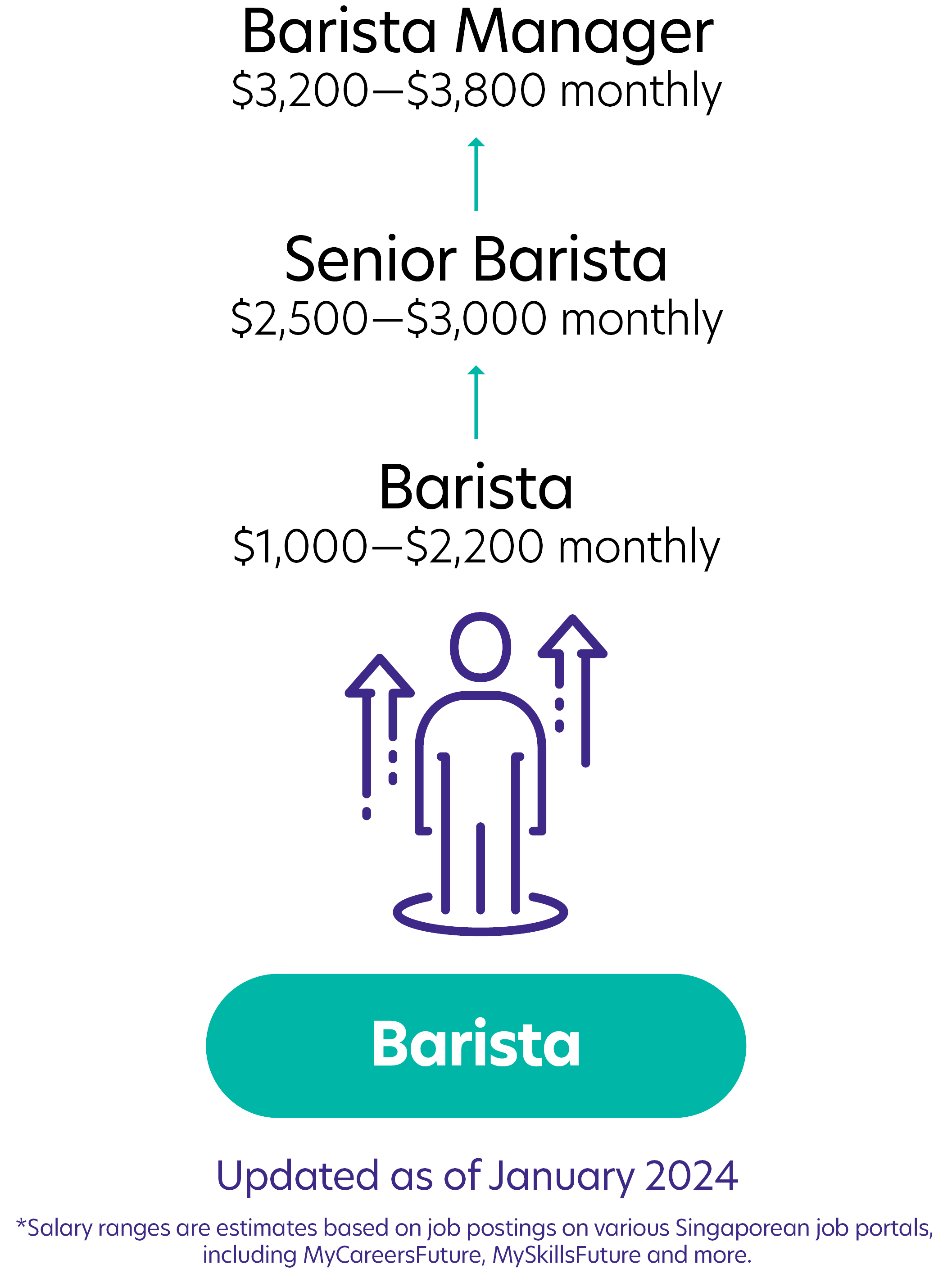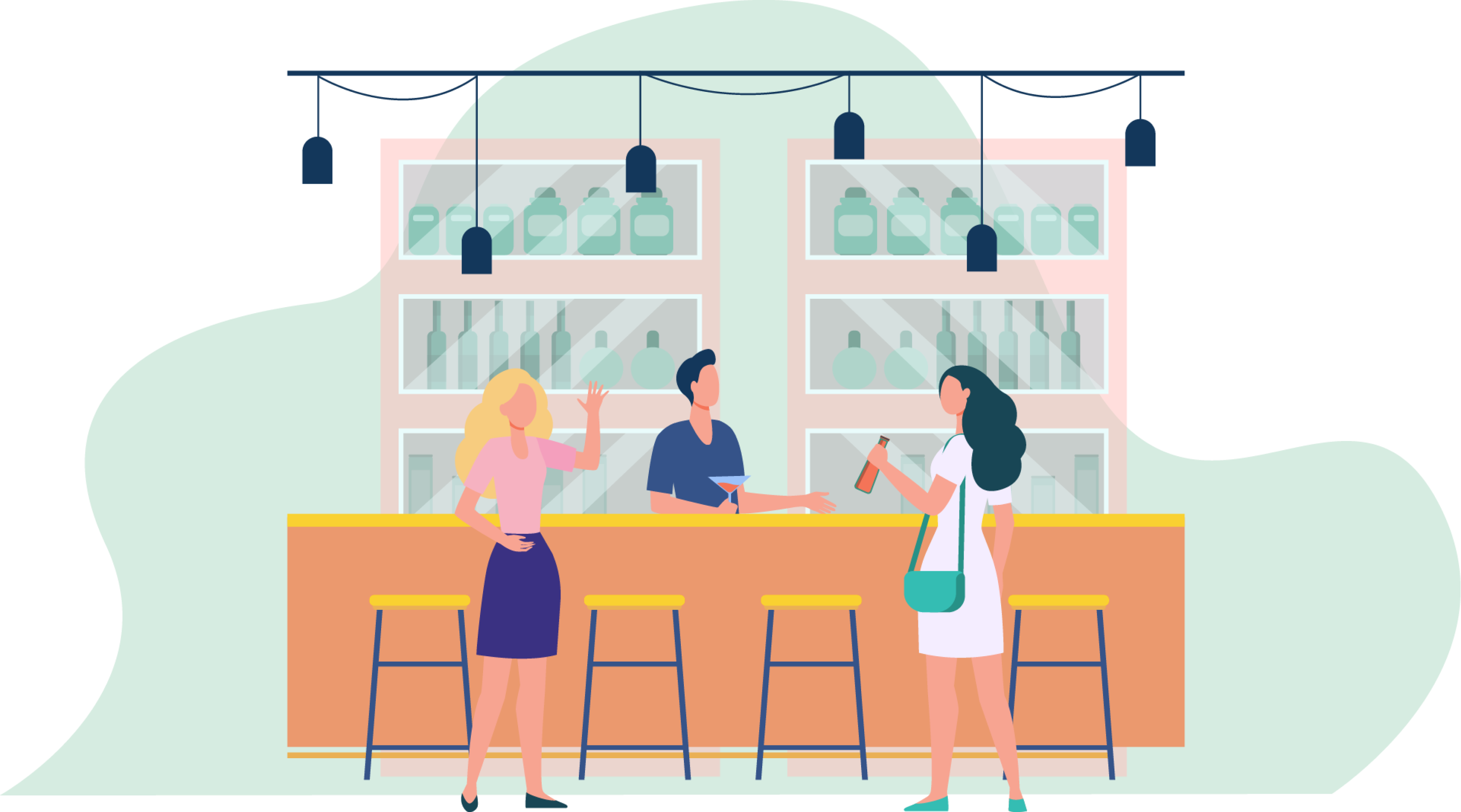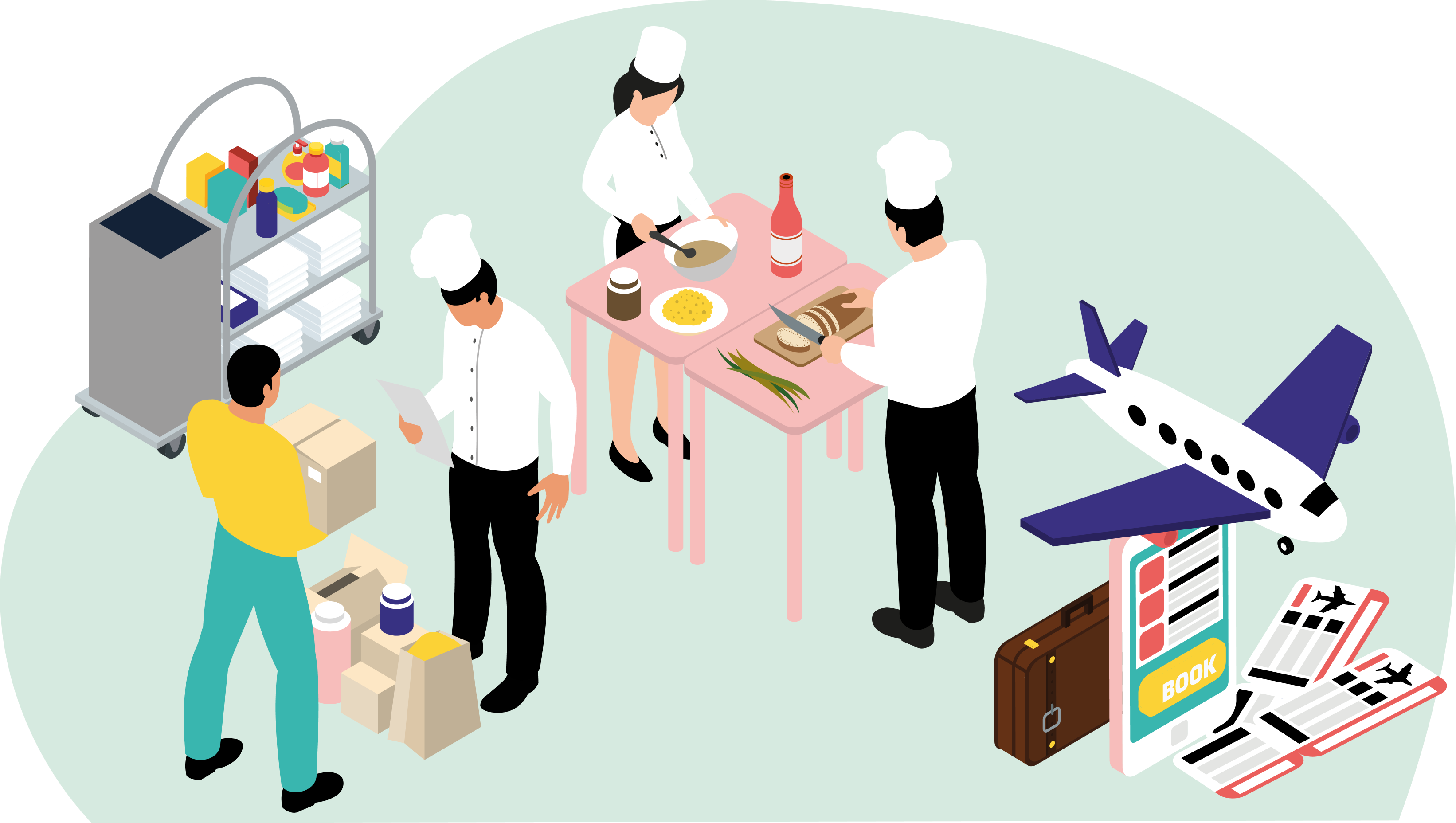
Baristas prepare coffee and other beverages along with baked goods for customers. They are also responsible for taking orders and processing payments, which requires proficiency with Point-of-Sale systems and cash handling.
Barista Job Description
- Establish relationships with and serve customers.
- Facilitate effective communication and engagement at the workplace.
- Follow safety and hygiene procedures.
- Prepare and serve hot and cold beverages.
- Provide speciality coffee service.
- Supervise quality procedures.
- Monitor and manage inventory of coffee supplies, baked goods and other consumables, including ordering and restocking items as needed to ensure smooth operation.
- Customise drinks according to customer preferences and dietary needs.
- Ensure the coffee service area is clean, hygienic and well-organised at all times, including cleaning tables, counters and the coffee-making equipment.
Note
Baristas are attentive to detail and they are meticulous in crafting their drinks. For example, milk has to be steamed to the right temperature to be used for latte art.
What you should know about Barista jobs in Singapore
Nature of Work
You must be able to explain the differences in the tastes of regional coffee beans if a customer asks.Key advice
You’ll also provide expert customer service by educating customers and making recommendations based on their preferences.-
Entry RequirementsEntry Requirements
- Minimally GCE 'N' Level qualification.
- You can take a look at Bettr Barista Coffee Academy, School of Coffee and CMCR Barista Academy SG, just to name a few, to build your fundamentals!
- You must have great precision in measuring ingredients and following different recipes.
- Experience in customer service roles, even outside the coffee industry, can be beneficial.
- Being enthusiastic about learning and sharing coffee knowledge can enhance your ability to engage with customers and improve their experience.
-
Possible PathwayPossible Pathway

Skills you need to pursue a Barista career in Singapore
Knowledge of Coffee and Roasts
Understanding different coffee beans and roasting levels to create a variety of beverages.Food Safety
Familiarity with hygiene standards and practices to ensure safe consumption.Latte Art
Skill in creating visual designs in the foam of a latte or similar coffee drinks.Efficiency
Ability to work swiftly and accurately, even under pressure.Flexibility
Willingness to adapt to changing tasks and schedules.Attention to Detail
Precision in measuring, brewing and serving to ensure high-quality beverages.Related Job Roles
Explore Other Programmes
Browse AllYou have bookmarked your first item!
Find it in My Discoveries with insights on your interests!









